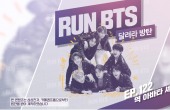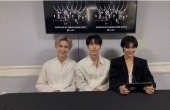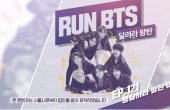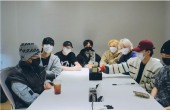Jungian scholar on BTS’ soul-searching album
By Ahn Sung-mi
“Who am I? The question I had my whole life. The question I probably won’t find the answer to my whole life.”
This is how BTS’ latest chart-topping album, “Map of the Soul: Persona,” opens.
Rapper RM attempts to answer the age-old question on the first track, titled “Intro: Persona.” He always dreamed of becoming a superhero, he says. And now that he feels like one, other people are sticking their noses in and telling him what to do.
The 24-year-old band leader discusses the struggle to discover his true identity underneath his larger-than-life persona, weighing his options between “the person that others want” and the person he wants to become. Different personas, he says, are all part of the same “map of the soul.”
When Jungian psychologist Murray Stein listened to the song, he was impressed with the singer’s honesty and the way the band is delving deep into psychology in the album, even though it’s a rare topic for pop bands.
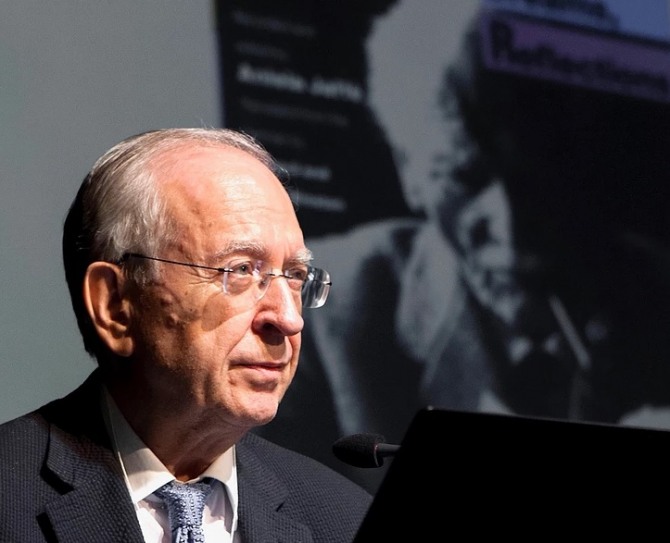 |
| Dr. Murray Stein |
“I think RM is beginning to understand the concept,” Stein said in a recent interview with The Korea Herald, referring to the persona. “He is singing about this issue of being a part of the group and being a celebrity, and yet being an individual at the same time. He said he is working on it to find who he is.
“The searching for soul and the self is an endless process and it doesn’t end in a lifetime. But at the core of it all, there is a person, a self, that was there when you were born and is with you in all the stages of life. That doesn’t change. We may have many different roles in our life, but the core stays with you.”
Stein wrote “Jung’s Map of the Soul: Introduction” in 1998, a comprehensive summary of Swiss psychologist Carl Jung’s discoveries and theories about the human psyche. Twenty years later, the book is the title of BTS’ latest album, as well as its source of inspiration. After the septet recommended the book on its official website, the book shot to the bestseller list on Amazon, as well as in bookstores on the band’s home ground.
“Did I ever expect something like this? No, I wrote this one 20 years ago,” he said with a smile. He does not know what this all means, he added.
“But later, when I got to know who BTS is and its popularity in Korea and internationally, it started to dawn on me that it could be quite an important link between Jungian thought to the new generation, and the people that are listening to and following BTS.”
Persona -- a Latin word referring to a role or character that an actor takes on -- in Jungian psychology is a socialized personality or way of presenting oneself to the world, the scholar explained, and is usually the first impression we have of another person.
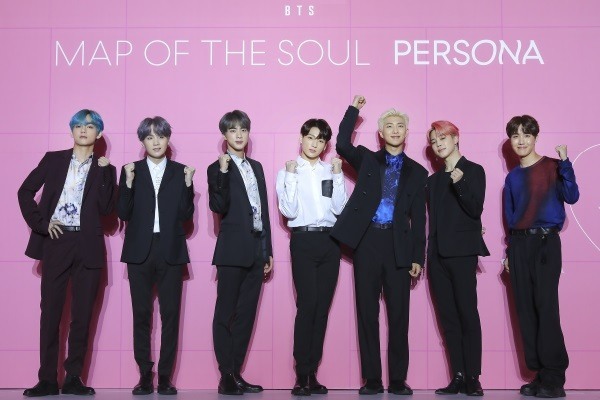 |
“Persona is something more superficial, and is a social relationship,” he said. “I think (BTS) chose this because lot of young people struggle with this issue. Many try to find a social personality that is comfortable for them as individuals and lets them fit into their surroundings, so that they fit into a group. We are social animals. To fit in, we have to figure out and adapt to social expectation.
“When we are in persona, we are not individuals, but we are a collective and part of the group,” he said. “This whole album addresses the individuality and the struggle to be an individual even when you are in a situation where having a persona is important.”
The danger of putting on a persona, from a mental health point of view, is that one can lose one’s authentic self and become weighted down by social roles and public expectations, according to Stein.
Superband BTS, whose popularity extends across the world, is no exception.
In that sense, RM’s United Nations speech last year was significant, Stein said.
“In the UN address, Kim Nam-joon, or RM, said he will always remember who he was as a boy living in a city that he grew up, his family and his real name,” he said. “There is a stage name and another real name, the two aspects of his personality. And he is determined not to lose himself in his public role.”
 |
Stein thinks all the BTS members, not just RM, share this view.
“When they sing about the problems and the questions on who they are -- what is my true name and true nature -- they are asking the questions people often ask when they come in for psychotherapy,” he said. “Many struggle to find their true voice and identity, who they are really outside of their social roles.”
In this context, he gave a shoutout to the song “Mikrokosmos,” also part of the recent EP, whose lyrics delve into the Jungian concept of individuality.
“The song talks about how each person is a star and there are billions of stars in the universe. The feeling that you are a star as an individual is the essence of individuality,” he said. “No matter how many number of personas you have, or whether (you are) with a room full of personas, in the center of everything there is a star that does not move. It’s your eternal soul. And if you know this, you can survive anywhere.”
In hopes of making Jungian ideas more accessible to more people, Stein recently released a new book titled “Map of the Soul: Persona -- Our Many Faces.” Dedicating the book to BTS, Stein said it was for people without any specialized background in psychology.
It also has a special chapter on BTS. “I hope it will inspire some of the fans to read more and to study Jungian psychology in greater depth in the future,” he said.
BTS, known for releasing album trilogies, has kicked off a new “Map of the Soul” series with the latest seven-track EP. When asked what might be next from the band, Stein said he hopes and expects to see BTS rolling out albums with titles like “Shadow,” “Anima” or “Self” -- all important Jungian concepts concerning the human personality and psyche.
“Shadow, is what’s hidden, the dark part you hide it away,” he said. “I don’t know if they want to sing that kind of song or touch on the shadow. But it will be really good if they do, making more people think.”
By Ahn Sung-mi (sahn@heraldcorp.com)
















